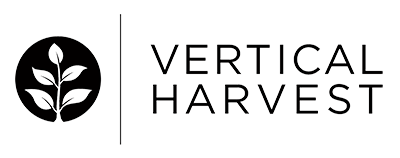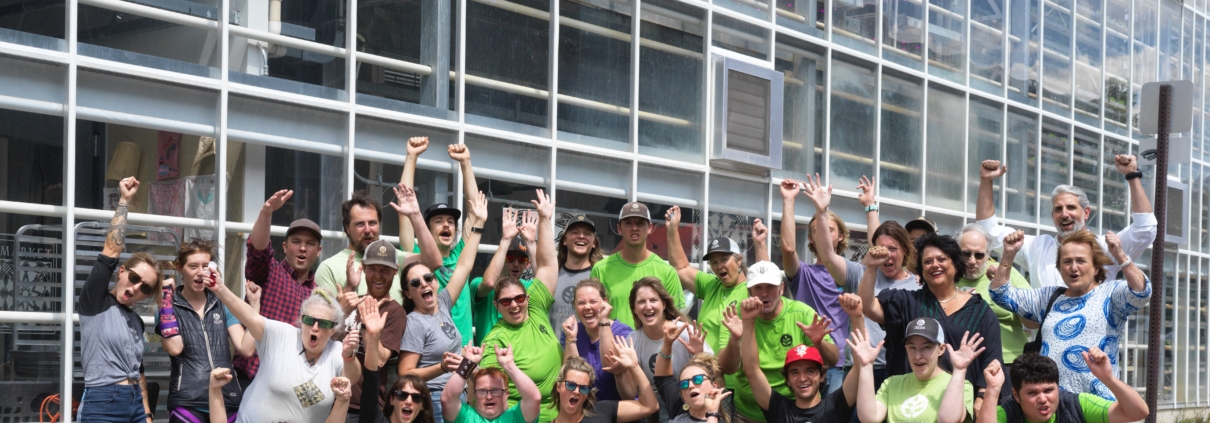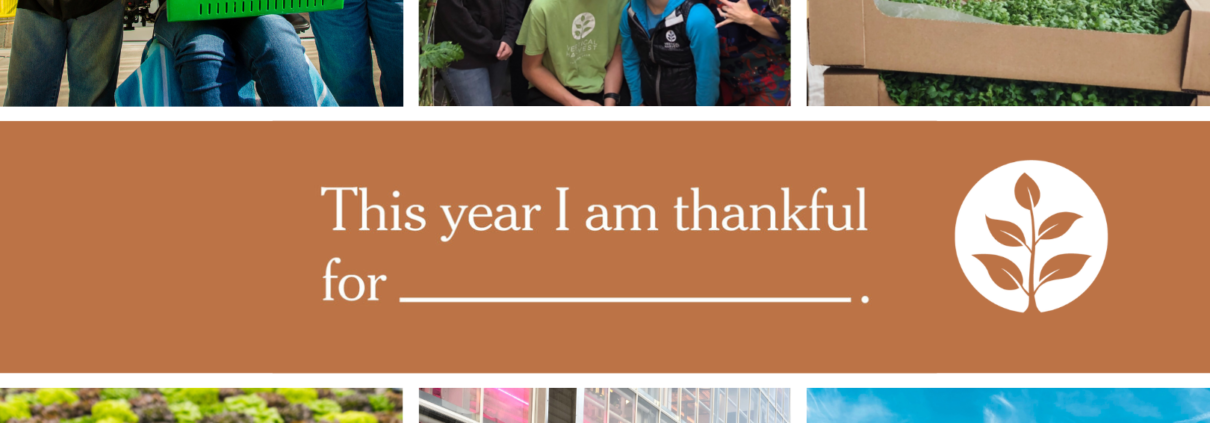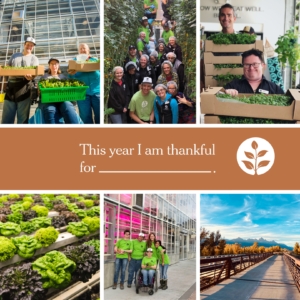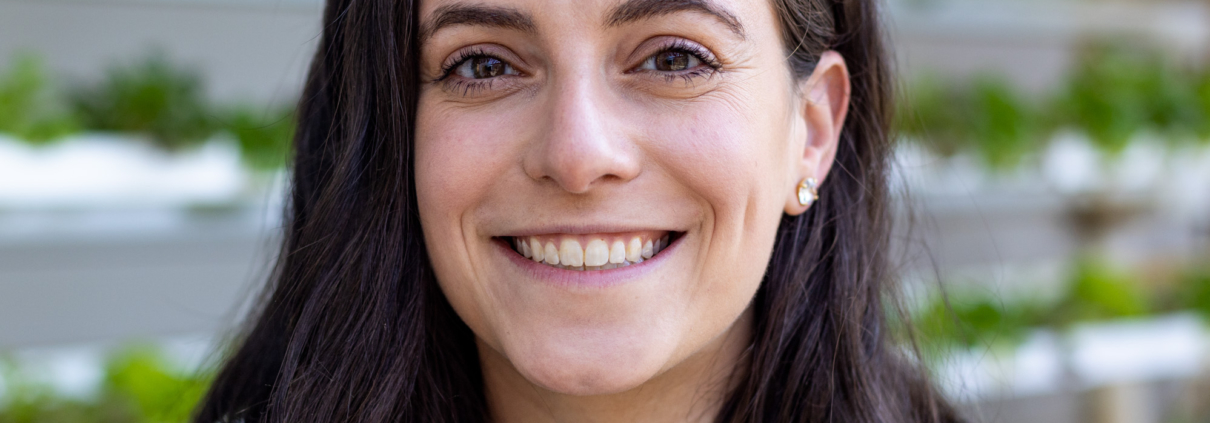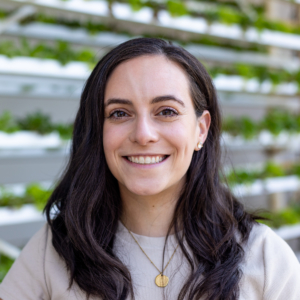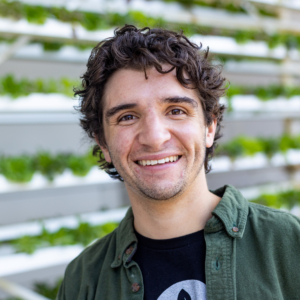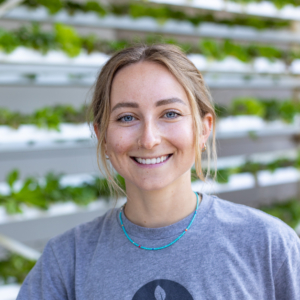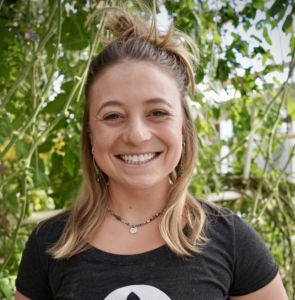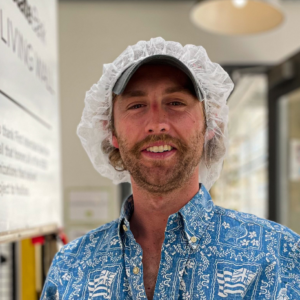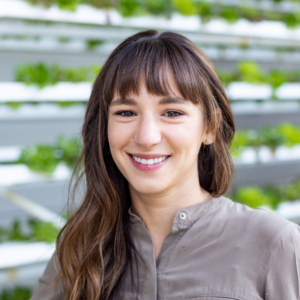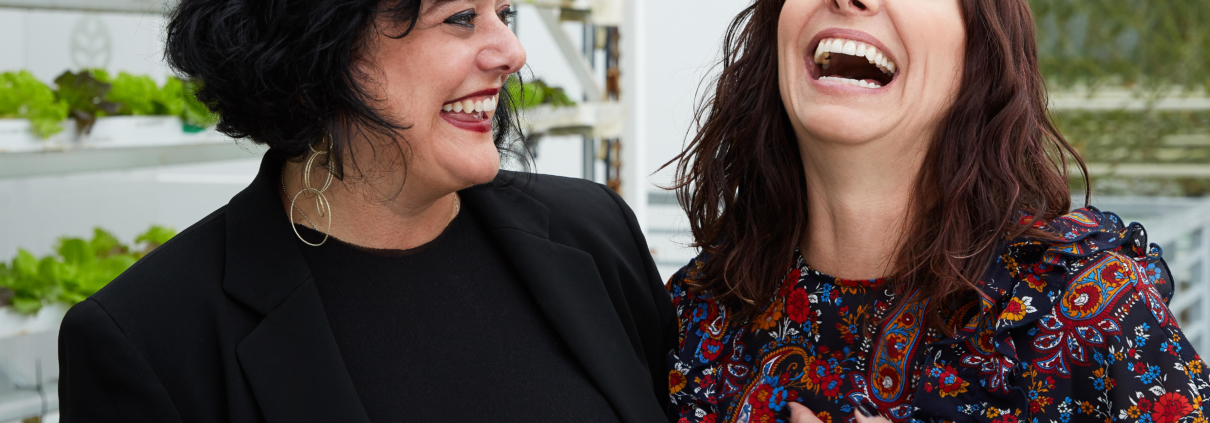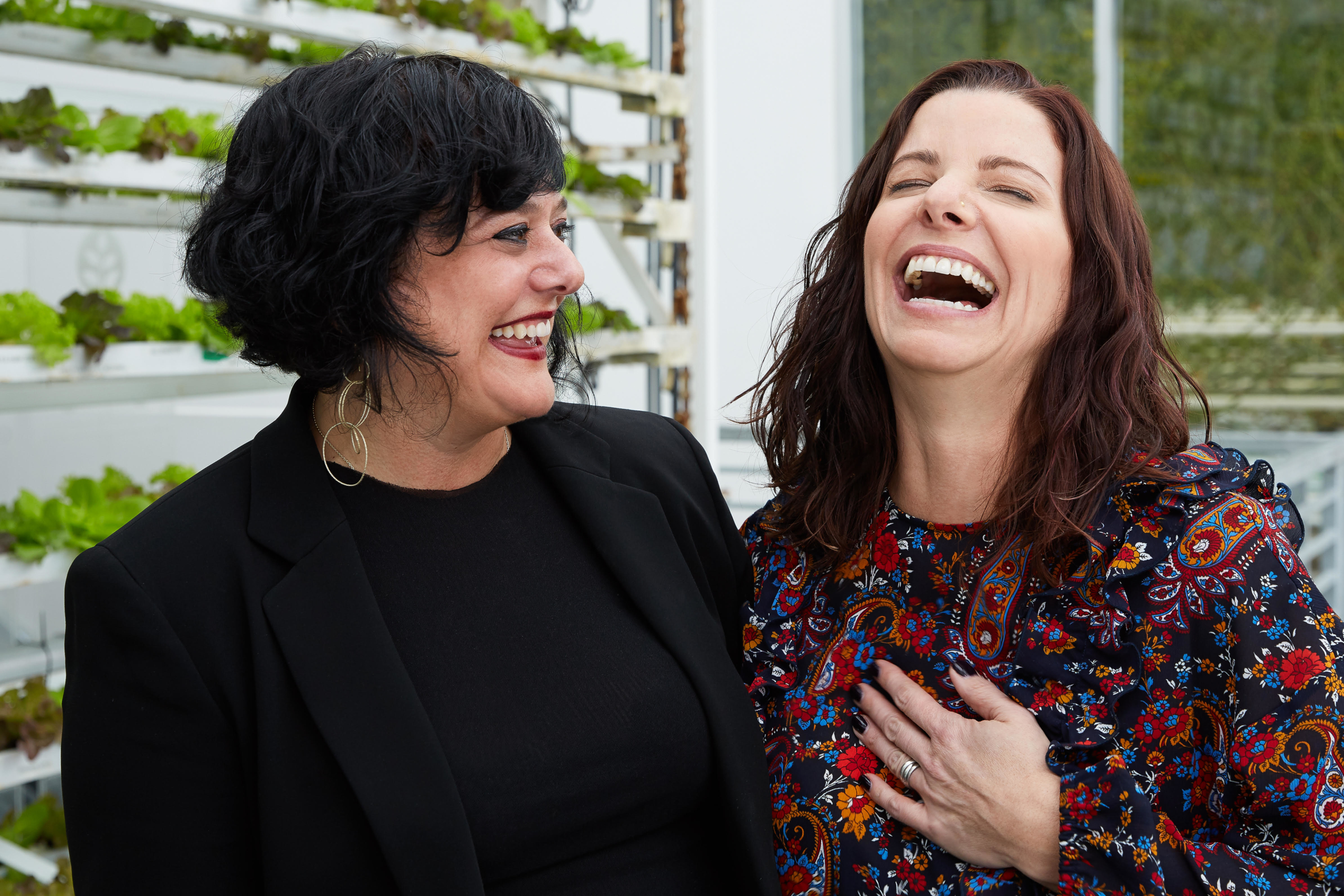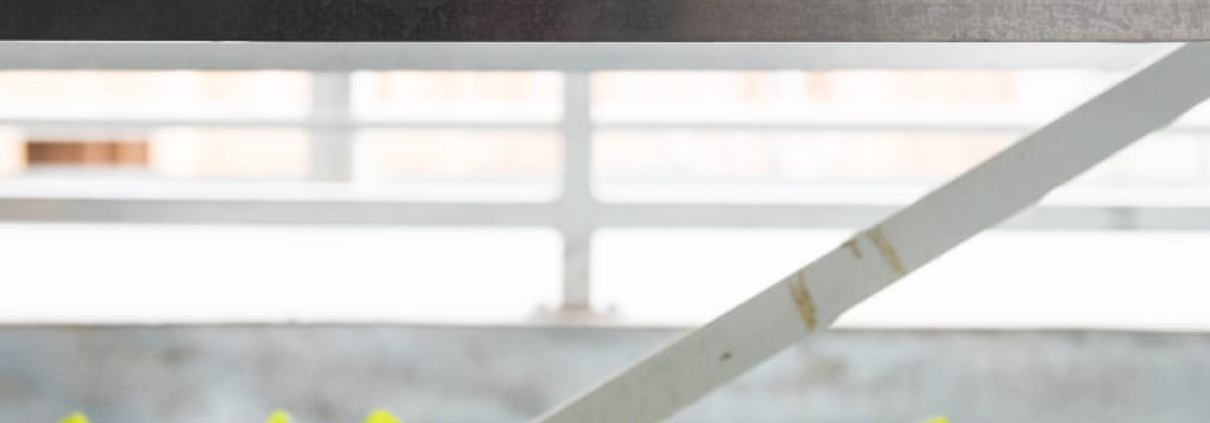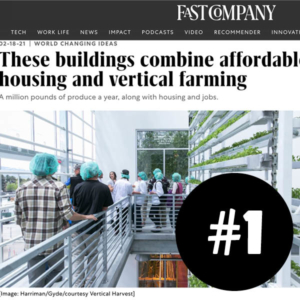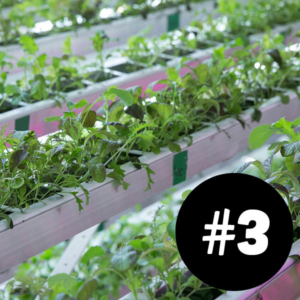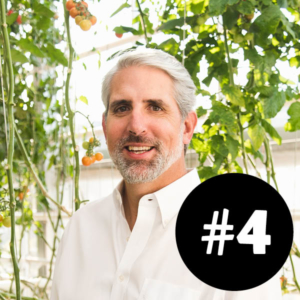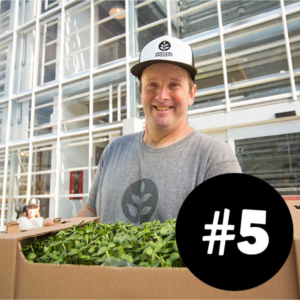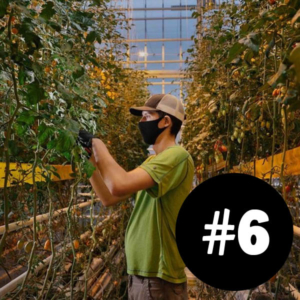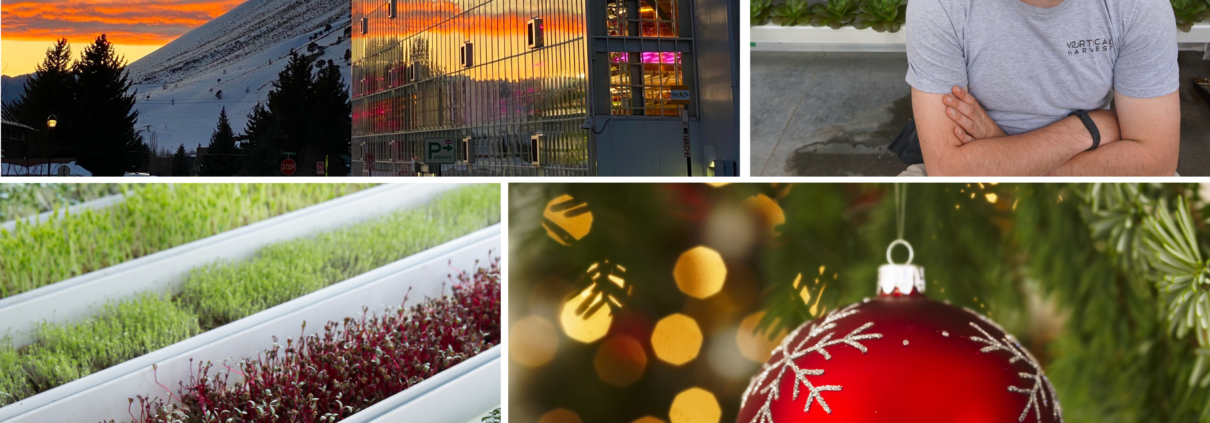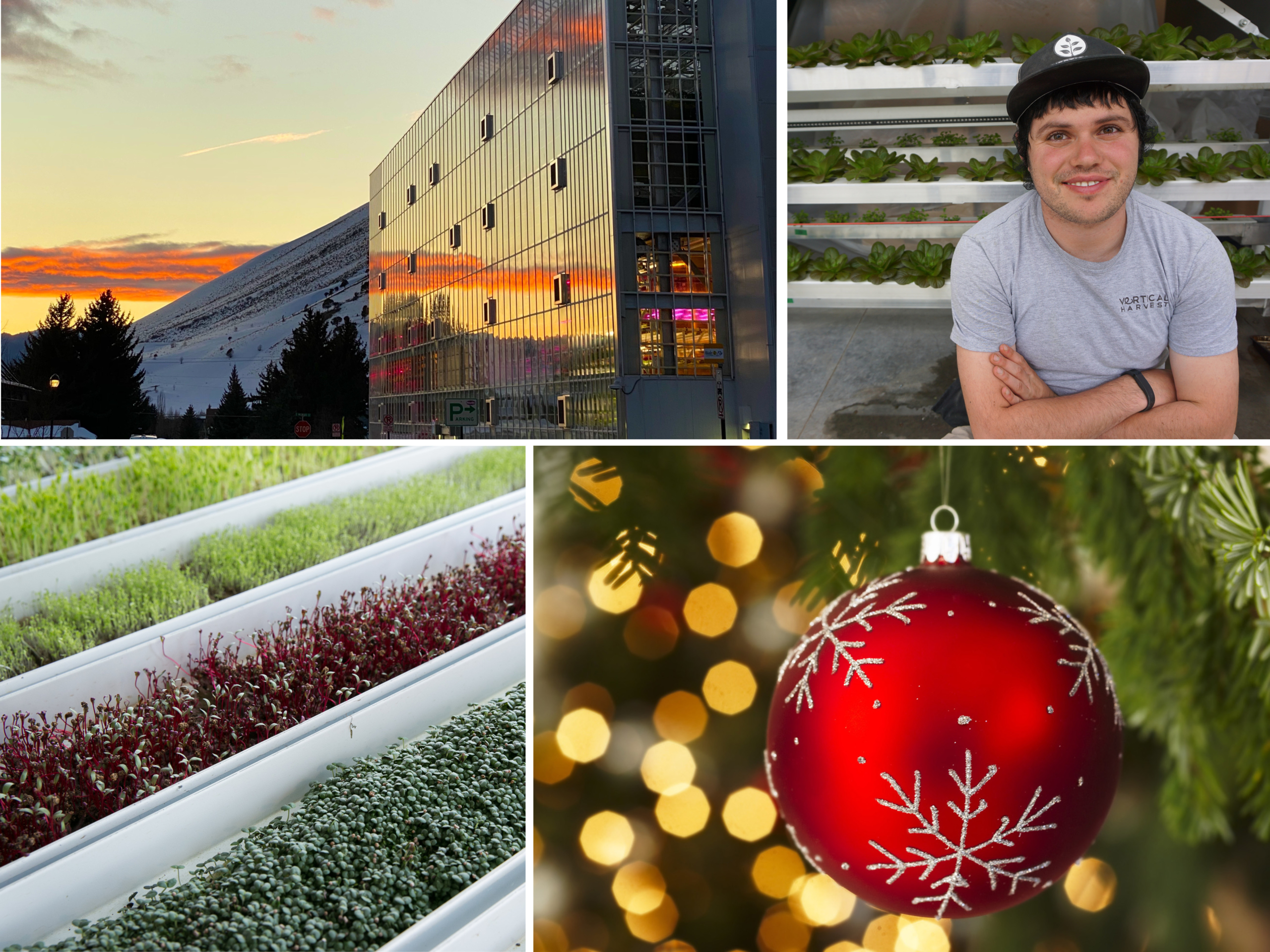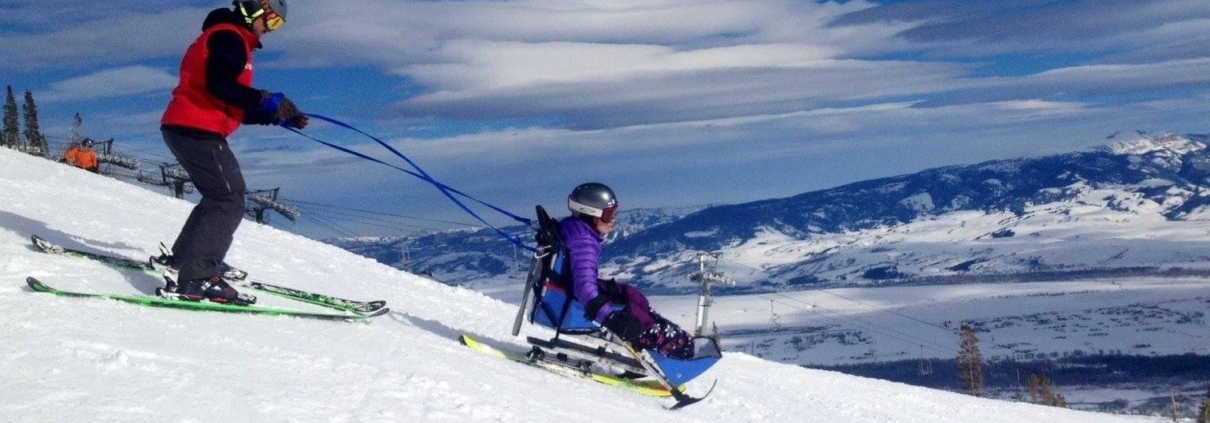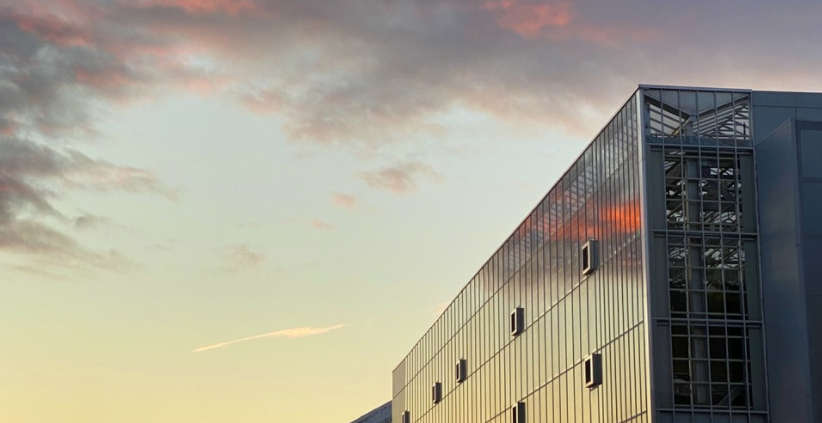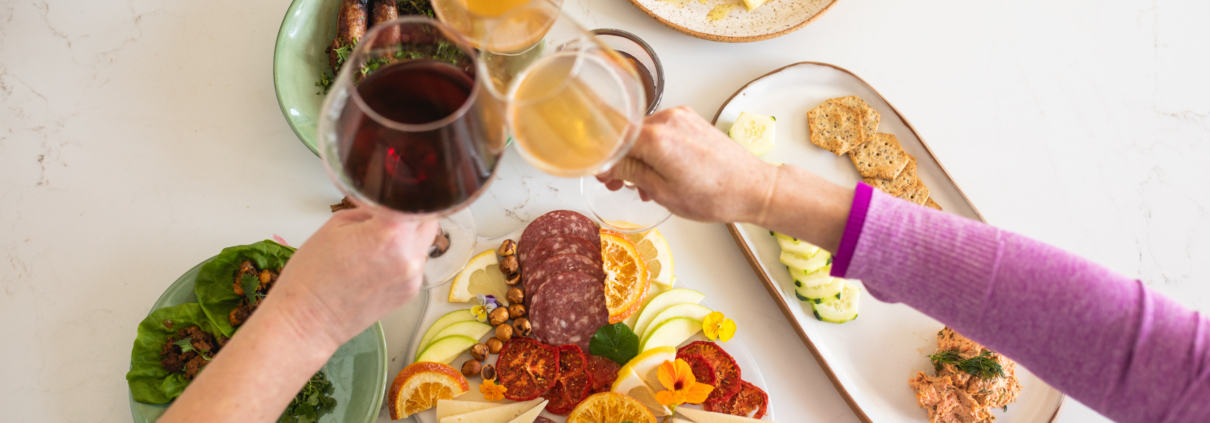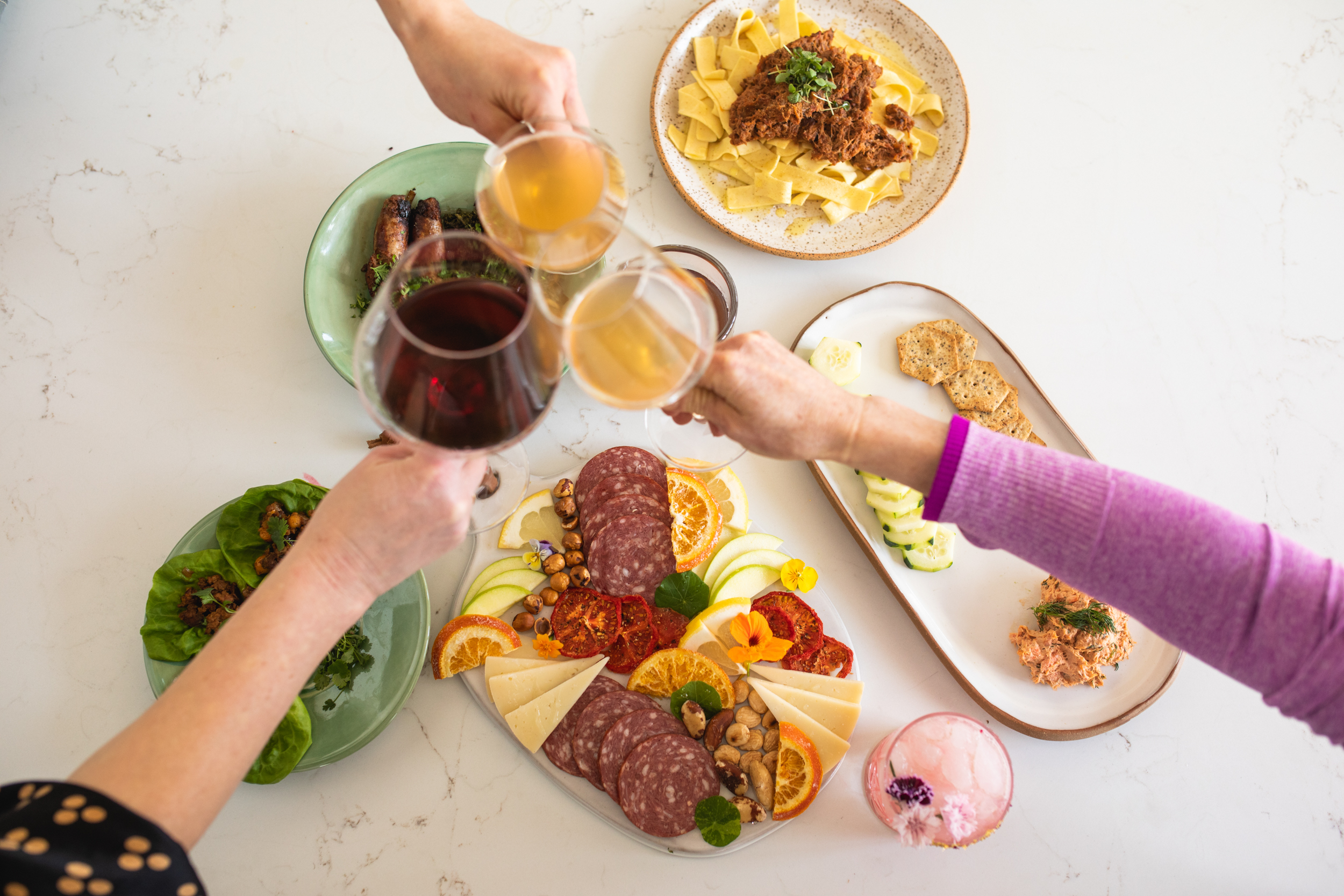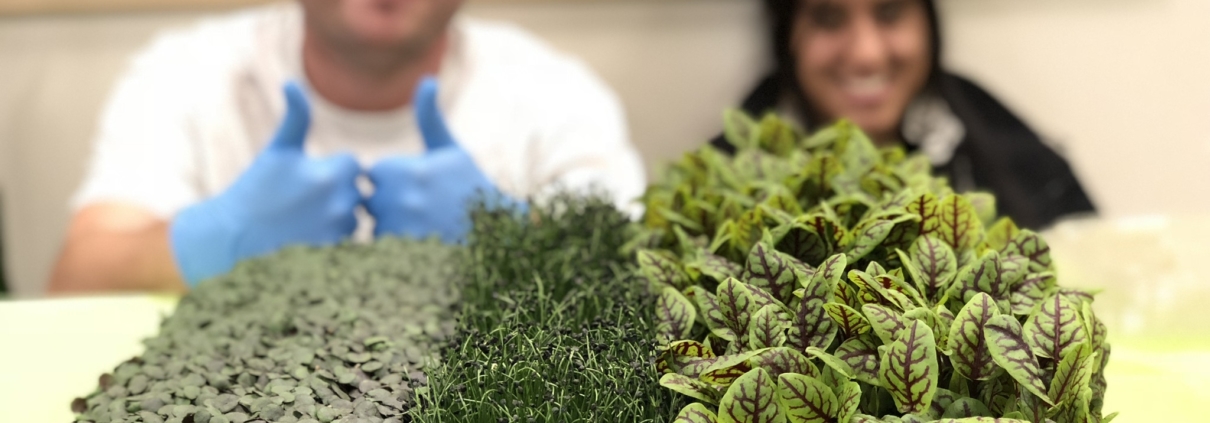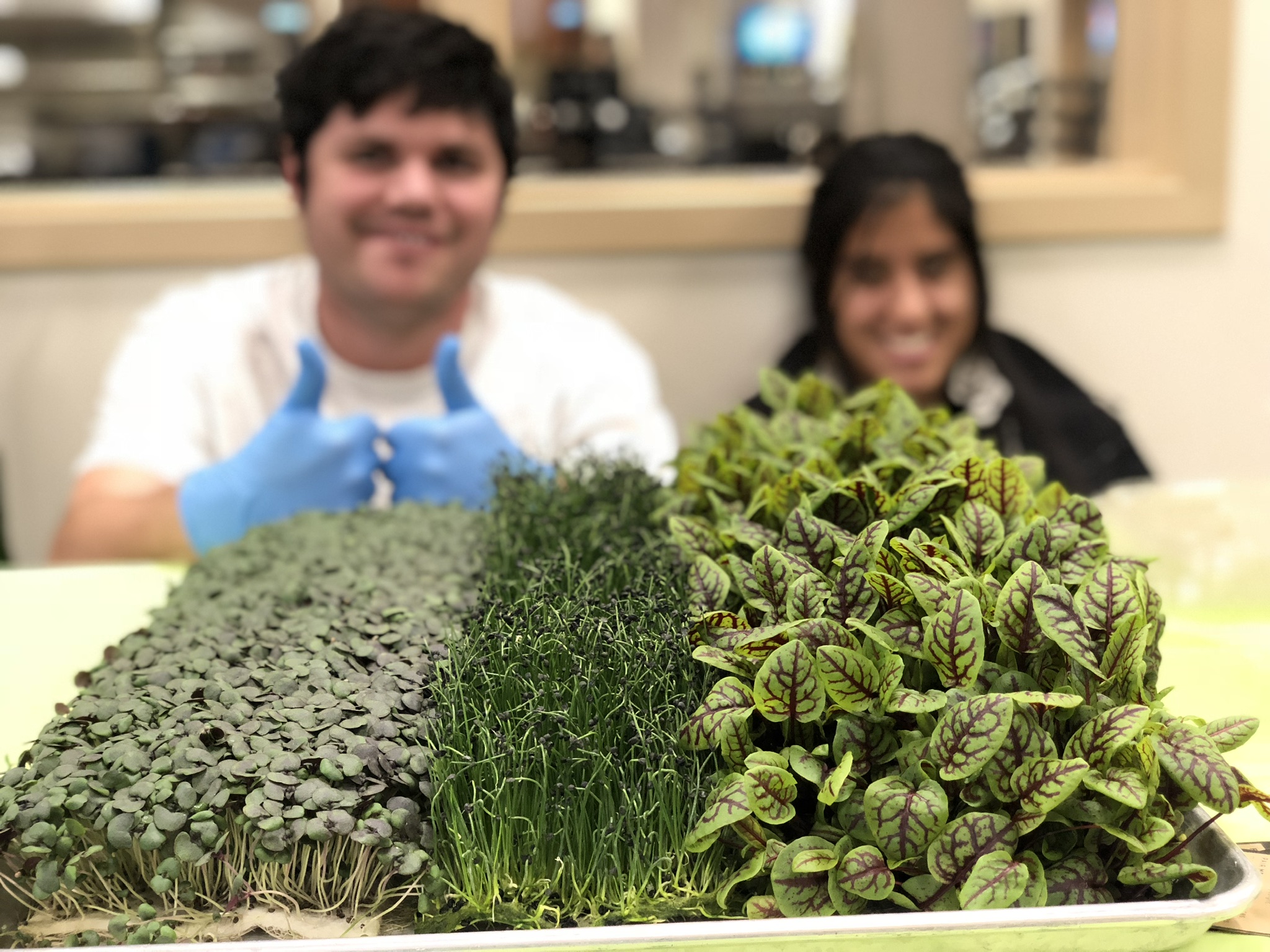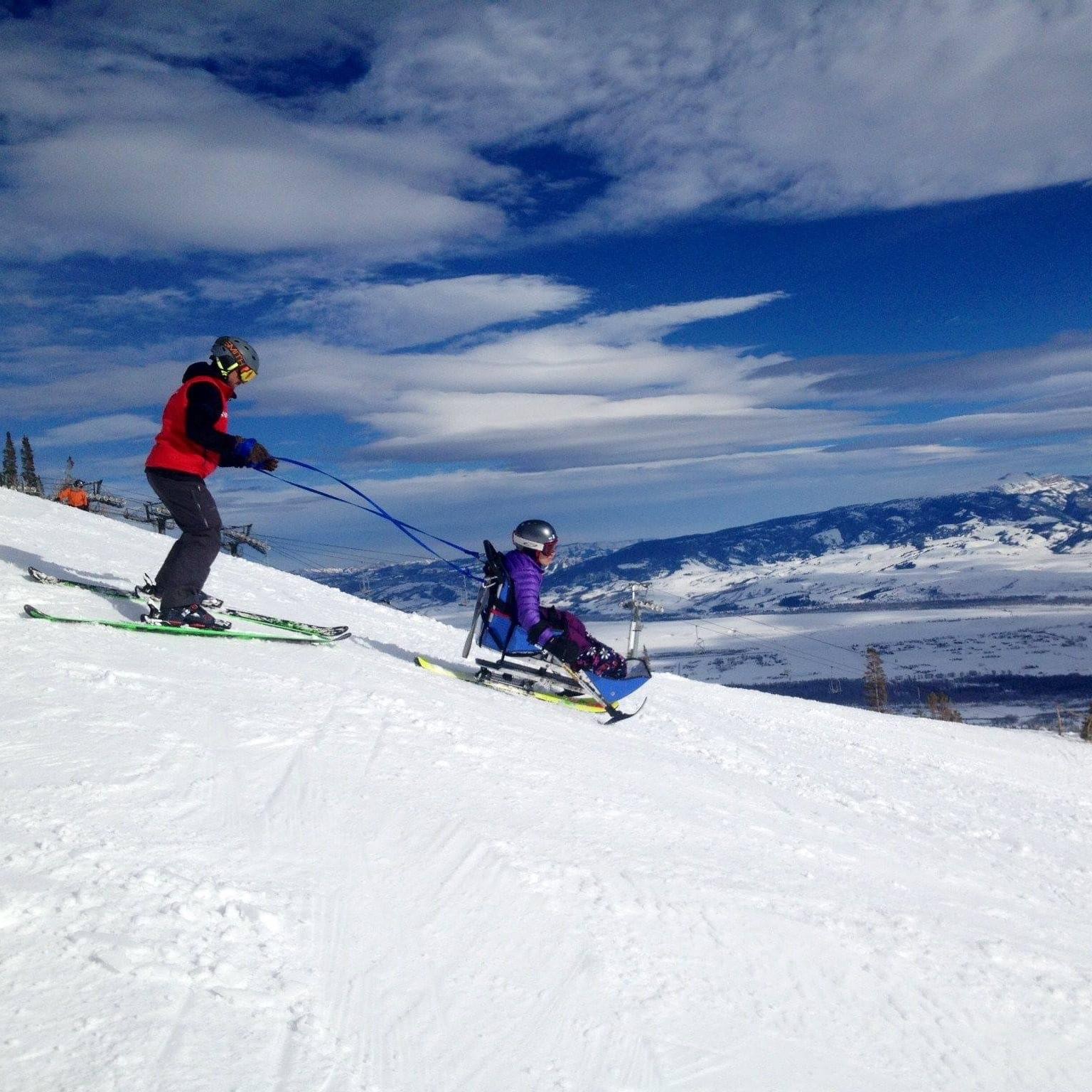
Summary / Intro
Vertical Harvest’s Nikki Thompson [Grow Well Associate] and Teton Adaptive Sports’ Joe Stone [Director of Mission] are advocates for disability rights in our community. But their cause extends beyond just Jackson Hole—to the broader issues of helping people recognize ableism in everyday life to ending stigmas and stereotypes around people with disabilities. Nikki and Joe spoke with us about National Disability Employment Month, how Teton Adaptive’s outdoor programming helps to address stigmas, and how we can all be better, more inclusive allies.
Interview questions:
- How can companies tell disability stories without them being framed as “tragic” or even “inspirational,” which has a negative context for some? Do you have any guidance for ways to more authentically tell stories about folks with disabilities?
- How have you experienced ableism or become aware of a situation involving ableism and what kind of tips or tricks can you give listeners to help them learn about ableism?
- How can individuals be advocates for the disability community?
Big Ideas:
- “Inspiring” stories about disabilities
- Examples of ableism in everyday life
- How to be an ally for the disability community
- “Compliance is not inclusion”
- Accessibility Design
- Giving people with disabilities a seat at the table (always… but especially when it comes to business/design for disabilities)
About Teton Adaptive Sports
Visit their website
Meet Nikki Thompson
“I’m Nikki Thompson, and I have been involved with Vertical Harvest since March of 2016, since we opened—so, almost five and a half years. I’ve been involved with Teton Adaptive Sports since it started as well. I love biking, skiing, and kayaking. Pretty much everything there is to do outdoors. Next on my list? Paragliding.”
Meet Joe Stone
“I’m Joe Stone. I’ve been with Teton Adaptive for a little over a year. As the Director of Mission, I work to create new partnerships for more inclusion in outdoor recreation. I also help lead TAS’s film, photography and social media. My girlfriend, Caitlin, started working as a physical therapist at TAS, which led me to actually looking at actually moving here. That opened up the door to really exploring the area and falling in love with it. No looking back now! It was a super fun journey getting here and I also love living here. Wow!”
How can companies tell disability stories without them being framed as “tragic” or even “inspirational,” which has a negative context for some? Do you have any guidance for ways to more authentically tell stories about folks with disabilities?
Joe
This is a super interesting topic, and a very complex conversation. I work in outdoor recreation and I’m an athlete myself. I have a lot of friends who are able-bodied, incredible athletes who are very inspiring human beings because they’re doing something that’s outside of the norm for most people, physically.
From my perspective, I don’t see a problem with a person with a disability being inspiring, too, if they’re doing something that is actually inspiring, right? I think there is a misconception about what people with disabilities are able to do. They have families. They go to the grocery store. They live on their own. All of this is totally normal for some differently-abled people, and it’s not necessarily “inspiring,” it’s just their everyday lives.
That’s where the stigma arises, in my opinion. This type of thought process—while it might be well-intentioned—reduces them to their abilities and perpetuates stereotypes that every single part of a disabled person’s life is challenging. We need to move away from that narrative.
When we shine a light on the truth, we see that differently-abled people are also artists, musicians, athletes, business owners—the list goes on. They are doing truly inspiring things in these different areas of their lives because they are pushing themselves to work harder, be better and hone their skills in a certain area. That’s why they’re inspiring. Not because they’re just existing, but because they are doing truly incredible things with their lives that we should be paying more attention to. I’ve seen firsthand in my work at Teton Adaptive, where I have the pleasure of telling some of these stories. For example, I filmed a project about so-and-so.
Nikki
I fully agree. I have a friend that just had a baby with spina bifida. Her baby is actually five and a half months old now and doing great. People kept telling my friend, “Oh, I’m so sorry you’re going through all of this.” But she’s like, We’re not a tragedy. It’s not anything to be sorry about.
Joe
I’m very proud to have a disability. I’m very proud to be living with a disability and be a part of the disability rights movement, and all of that there’s a lot of amazing humans within it.
I don’t look at my disability as anything negative, and I don’t think really anybody else should either. I think that’s a stigma in society. But also within our own community of people with disabilities, I would like to see that energy grow more where more people are actually proud to have their disability be a part of this community and not wish they were “fixed.”
You know, and I wish society would stop thinking that they need to fix us. But also, there’s an element that I don’t necessarily think that everybody looks at people with disabilities as people that add value. So, for some people, it’s shocking to see us at work. Because, you know, what can we possibly add? In my opinion, I think we have a lot of value to add. I know we have a lot of value to add, and it should be normal for people with disabilities to work. That shouldn’t be an uncommon sight to see.
Question 2: A big topic we’re talking about this month is ableism. Recently, we walked around the greenhouse and asked our employees their thoughts on it, and if they had ever experienced ableism themselves. Something interesting we found was a lot of our own employees didn’t really understand what ableism was, or they thought it was a positive thing. They were like, “Oh, it’s support for, you know, people with disabilities.” So, we then created a whole education system around understanding ableism and microaggressions.
So, I think this is a big question, but how have you experienced ableism or become aware of a situation involving ableism? What kind of tips or tricks do you have to educate people?
Joe
Yeah, totally. I experience it pretty often. And sometimes I look past it and just keep moving forward. Because if I were to stop and address it every single time that I experienced it, it would be a pretty exhausting process.
Ableism comes in so many different forms. For example, I see ableism a lot in the outdoor industry. Sometimes, people with disabilities are left out altogether. Other times, people with disabilities aren’t even included in the conversations about how to support people with disabilities. So, it’s people without disabilities thinking that they know exactly how to support disabled people, without any actual input from them..
I see that happening quite a bit in that trail building, where if you would have just included people with disabilities, the trail could be built in a way that works for everyone. But instead, people assume they can figure it out without including people with disabilities. So that’s one area where I see it, where I don’t see people with disabilities at the table enough and having these conversations and helping out with planning. And that extends to so many different industries.
Even in organizations that are there to support people with disabilities, I see a lot of outdoor recreation nonprofits that are run and organized by people without disabilities. We have so many companies out there doing work to support people with disabilities. However, people with disabilities are not really even involved, and if they are it’s a very small percentage.
On the slightly lighter side of things when it comes to ableism, for example, I could be going to the grocery store, loading my wheelchair up into my van, and a person without a disability comes up and says, “Hey, can I help you get that up there?” And I’m like, “Oh, no, I’m not good. I do this every day.” But they keep insisting that they need to help me. I’m thinking to myself, first, you don’t even know where the chair goes, how the brakes work, et cetera. You don’t know how to stop and break all that down. It would take more time out of my day to even teach you that. Secondly, you’re not even listening to me. So, that’s just a frustrating aspect in itself. Third, you’re assuming that you’re more capable than I am. Just because you don’t have a disability, or at least a visible disability. Those are the moments that are an everyday occurrence, where I just have people who automatically assume they’re going to be able to help me more than what I can do for myself.
But the biggest example of ableism I see in terms of like a big issue is just the lack of inclusion for people with disabilities within these conversations. If you’re building a new business or whatever, you should have somebody with a disability involved in that planning. That trickles down to every industry. There are plenty of us who are able to help.
Nikki
Yeah. Exactly. I just got back from a month-long trip to Wisconsin, Minnesota and South Dakota. We spent a month on the road, and we went to hotel after hotel after hotel. I think I found that maybe two out of all those, like, 15 hotels we stayed in actually worked for me to independently do a shower. They always have the bench on one end and then five, six feet away, the hose is at the other end. So once I get on the bench, how am I supposed to even turn on the water?
Joe
Yeah, a good friend of mine once said that, in talking about the Americans with Disabilities Act, “Compliance isn’t inclusion.” Just because you’ve met the compliance side of things doesn’t mean that you built something in a way that’s truly inclusive. So one it might be built in a way where Nikki, someone like you or I, can’t even really use it independently even though that was the original intent. I bet if you’d had some people, some experienced people with a disability in that field, you would have probably been able to do that better.
Another example is at restaurants. You go up to the front door and there’s a couple steps to get in, but no ramp. They’re like, “Oh, the ADA entrances are through the back.” So, your whole family or group of friends goes in the front door, but you have to go back past the dumpsters, through the kitchen and then to your table. It’s like, well, that wasn’t an inclusive experience.
Question 3: How can individuals be advocates for the disability community?
Nikki
I think we’re doing it right now. Just being out in the community and showing, telling our stories and showing people how we work. Just like people think that we can’t work but then they see us do it. So, I think it’s about showing them what we can do. And for us, it’s about advocating sports-wise, too. I went skiing, there were tons of people around and they would cheer me on. So, then they can see, “Oh, people can ski even in a chair.” It’s just different equipment that helps us get there. So, yeah, just basically getting out in the community, I would say. Actions can speak louder than words sometimes.
Joe
Yeah, I totally agree with that. To add to it, I think one of the best ways people without disabilities can help advocate is to be an ally. Being an ally doesn’t mean you’re the voice, you’re the one at the front of the line, you’re the one out there in front of the media. Being an ally is simply being somebody that’s there to support—the people who are advocating for Disability Rights, better work environments, whatever that whatever the situation might be.
I’m a member of ADAPT, the driving force behind getting the ADA passed back in 1990. I’ve learned a lot about what being an ally really is, both for me being an ally to other people, and for other people being an ally for the disabled community. If you’ve got 200 people marching somewhere to protest and the media comes up, they often will go to the most able bodied person looking in the crowd, and say, “Hey, what’s going on here?” And instead of that person saying, “let me tell you all about this,” they’re like, “let me take you to a person who can really speak to the issue.” And often, they’ll take them to the person who deals with the most struggles within the issue of what we’re talking about.
I think a lot of times, people get being an advocate and an ally blended together too closely. No matter what marginalized group or minority we’re talking about, like for me, I can’t speak towards women’s rights, right? But I could be an ally and be there for support. But I’m not going to be the one standing up on stage speaking about women’s rights. And I think the same thing is to be said for people with disabilities. We should be the ones speaking. The more that happens, the bigger that movement grows.










